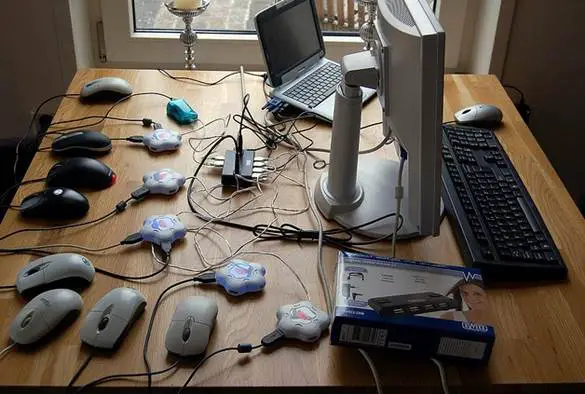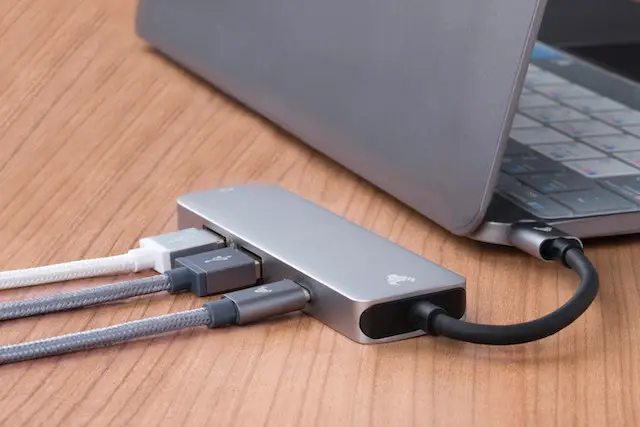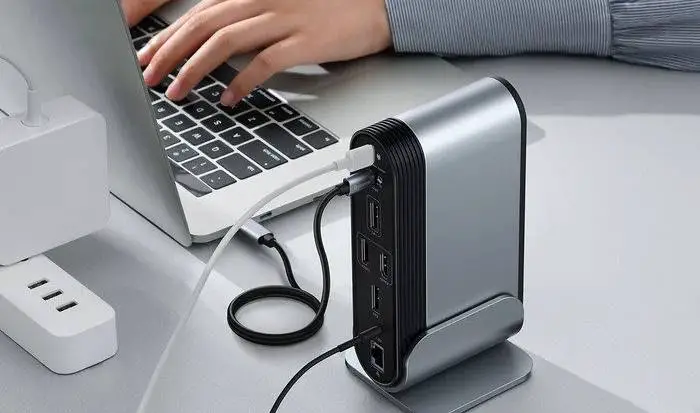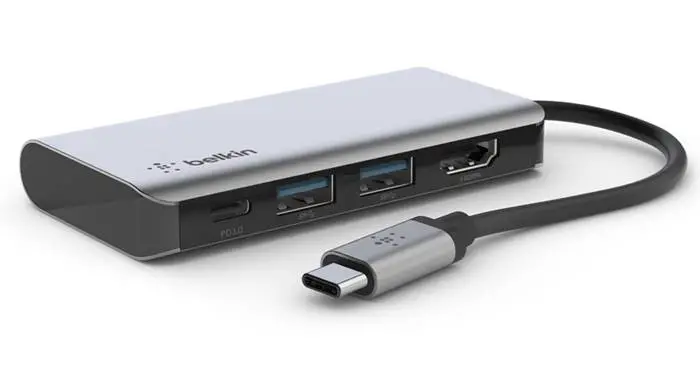In today’s technology-driven world, USB ports are crucial for connecting various devices to your computer. Whether it’s charging your smartphone, transferring data, or using peripherals, having enough USB ports is essential. However, running out of them can be a frustrating experience. Fear not! In this article, we will explore practical solutions to overcome the problem of not having enough USB ports. So, if you find yourself in a USB port shortage, read on to discover some effective remedies.

1. Prioritize and Unplug
The first step in resolving the issue of not enough USB ports is to prioritize your devices. Determine which devices require constant connection and unplug those that are not in use. For instance, if you have a printer, scanner, or any other peripheral that you don’t use frequently, consider unplugging them temporarily to free up some ports for more important devices.
2. Invest in a USB Hub
A USB hub is a great tool to expand your USB port capacity. It is a device that allows you to connect multiple USB devices to a single USB port on your computer. USB hubs come in various sizes and configurations, offering additional USB ports for your convenience. Simply plug one into an available port, and you’ll instantly have extra ports at your disposal. Look for a powered USB hub if you plan to connect power-hungry devices such as external hard drives.
3. Explore Wireless Connectivity
Another effective solution to the USB port shortage problem is to embrace wireless connectivity options. Many devices that typically rely on USB connections now come with wireless capabilities. For instance, wireless keyboards, mice, and headphones can connect to your computer using Bluetooth technology, freeing up valuable USB ports. Additionally, consider wireless solutions for transferring files, such as cloud storage or Wi-Fi Direct.
4. Utilize Docking Stations
If you have a laptop, docking stations can be a game-changer. These devices not only expand your USB port capacity but also offer additional functionality. Docking stations usually connect to your laptop via a single USB port and provide multiple USB ports, along with other connectivity options like HDMI, Ethernet, and audio jacks. This solution is particularly useful for users who require a workstation-like setup with multiple peripherals.
5. Opt for USB Adapters
USB adapters can be a practical and affordable solution to increase your USB port availability. These adapters come in different forms, such as USB to USB-C, USB to HDMI, or USB to Ethernet. By using the appropriate adapter, you can connect devices that have different port types to your existing USB ports, expanding the range of devices you can connect.
6. Consider Internal Expansion Cards
For desktop computer users, internal expansion cards can provide a long-term solution to the USB port shortage. These cards can be installed on your computer’s motherboard, adding extra USB ports directly to the system. While this option requires some technical expertise, it offers a seamless and integrated solution, ensuring a sufficient number of USB ports for your needs.
Read also: 5 Cool USB Drive Designs
Conclusion
Running out of USB ports can be a frustrating experience, but thankfully, there are practical solutions to overcome this problem. By implementing strategies such as prioritizing devices, using USB hubs, embracing wireless connectivity, utilizing docking stations, opting for USB adapters, or considering internal expansion cards, you can ensure that you have enough USB ports to accommodate your needs. So, don’t let the lack of USB ports hinder your productivity—explore these remedies and stay connected to the devices that matter most to you.




This one can be a great solution if you need as many USB ports as the picture shows 😉
Ha ha.
But this can also be helpful if one or ports get damaged or something.
Nice share 🙂
I don’t have a USB hub to be honest, the available ports on my laptop are more than enough for me. I got the picture from Flickr, but I never met someone in real life using that many USB hubs.
Yeah you are right. USB hubs are great. They will help you if you are using many devices. I have one and I connect my usb fan and light to usb hub.
Yeah I’m using a fan to help cool my laptop too. But it’s connected to one of the built-in USB ports. I don’t connect that many external devices to my laptop.
Do you think, having so much thing connected in the USB port won’t harm any hardware?
I’m not sure, Desiree! It might be…
I don’t think it will harm your hardware. But it will decrease the speed of your system.
I think my computer has 4 usb ports in the back and 2 in the front, which at the moment works for me. I could see how people would need more though with all kinds of devices using usb these days. It’s hard to imagine the good old days when we didn’t have them now.
That’s an interesting picture you have there too Peter. It looks kind of like a friend of mines computer. He has all kinds of gadgets and things hooked up to his computer.
Yeah my laptop has more than enough USB ports for me and personally, I don’t like to have too many devices hooked up to my laptop it’s kind of messy to me. I like to keep things simple 🙂
hello peter
nice article. well, my laptop has 4 ports and i never faced any issue with them. for me only 1 port is enough but yes if you need more ports then USB hubs can be a great way to increase the number of ports
Exactly, Prabhat!
Informative post! Well yes, non-powered USB hubs are great for a desktop computer as they take the power directly from the computer and computer draws power from an external source. However, if one is having trouble powering an electronic device through a USB hub, then using a powered USB hub is a good idea. Thanks for sharing and tweeted 🙂
Thanks for commenting, Nizam! And I appreciate the tweet! 🙂
All modern computer or laptops are provided with at least 4or 5 USB ports.So I never get a situation where I use a external device to connect USB.But who will see the future.I surely remember USB hub , whenever I will require it.Thanks for nice sharing.
Yeah 4 or 5 USB ports is the standard these days. Mine has 4 and I’m using only 2 for mouse and cooling fan. I don’t see myself needing a USB hub. However, just like you said, who can predict the future, right? I might use as many USB hubs as that in the picture one day who knows 🙂
hey peter,
nice article for those who are busy to play games or other complex things ,
i have not face this problem because my laptop has 4 USB ports and enough for me ,
thnks!!!
Same goes with me! 🙂
first of all, how did you get this image.., it explains the whole essence of article, and secondly I would choose external powered USB hubs so that they would not depend on my laptop for power…
If you look at the end of this article you’ll notice the image is taken from Flickr. It’s perfect for the post isn’t it? LOL…
ha ha..!
I can see there are 8 mouse which are connected to 6-7 USB hubs, I think two USB hubs will be appropriate to connect each of them…
thats the beauty of using USB hubs.. 😉
yes that’s the perfect picture.. 😉 😀
Lol there are USB hubs which has 12 ports. 1 will be enough
Hey Peter,
Nice post and Thanks for sharing this USB Hub concept with us as it easily increase the number of port. This USB Hub really become very helpful when port are engaged with other things or ports get damaged. I really like the picture you applied.
Thanks for commenting, Sudipto! Hope to see you around 🙂
hello peter great article
sometimes my USB ports are not enough because i do many things simultaneously like charging my phones, playing games with mouse, copying data from HD etc. so USB hubs seems a nice option
If that’s what works for you then, great! 🙂
Yes -basically only two real alternatives – add on usb card for the desktops and usb hub for laptops and dektops